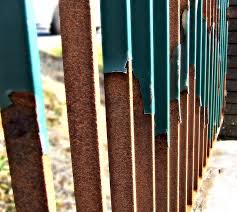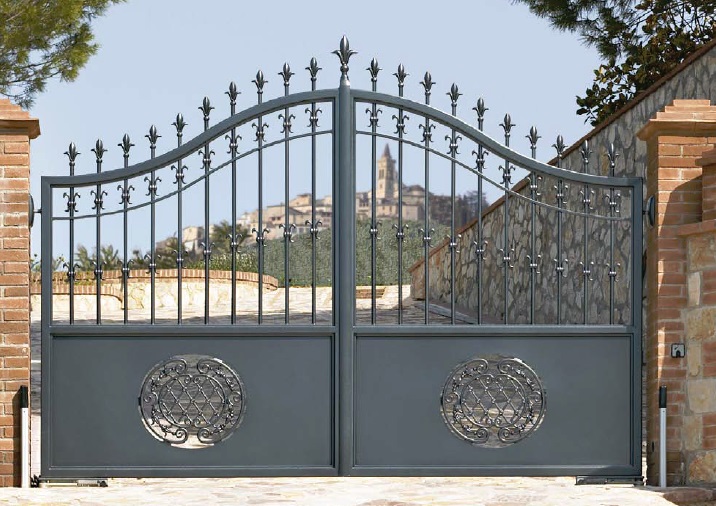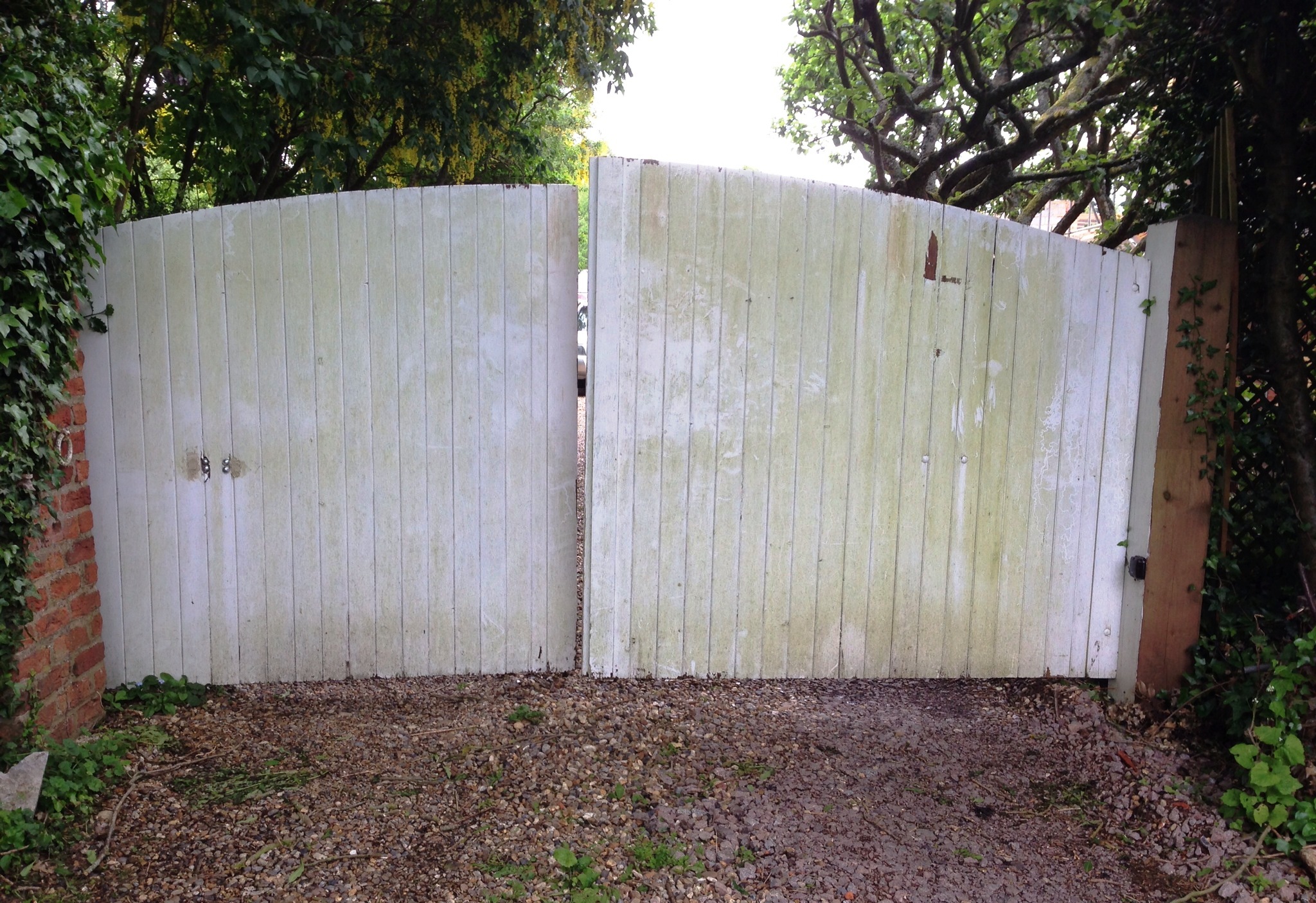-
Your shopping cart is empty!
Menu
Your shopping cart is empty!

Many people will say that they chose automated gates to increase safety and security for their home and family. But there’s no doubt that adding new gates for your home is also a great way to enhance the value of your property and make a statement to visitors and passers-by. So, the last thing you want when you spend lots of money on beautiful new gates is to see them slowly deteriorate in the UK’s variable climate.
So, what options are there and what can be done to reduce or even prevent weathering? Is one gate material better than others and does that make it more expensive? Let’s take a closer look at the various popular gate materials and consider which one may be the best choice for your own automated gates.
Wooden Gates
In the UK, it rains and sometimes it’s sunny. So, what does that mean to gates?
With wooden gates, rain water is absorbed into the wood. The wood expands and gets heavier. When the weather is drier, the water leaves the wood which shrinks and becomes lighter again. This constant change of size and weight affects the gate’s structure, hinges and motors which must work harder with heavier gates.
But the change in size also affects the surface of wooden gates. As they expand, paint and wood treatments stretch, joints compress and they can bow slightly. When they shrink, the wood cracks and eventually splits. The surface finish cracks and starts to flake off. As this is usually the paint or wood preservative that is protecting the wood from water getting in, the situation gets worse until old, flaking finishes can be rubbed off and new ones applied.
If left untreated, joints work loose and the gates sag until they drag on the floor. Eventually, the wood starts to rot and the problem becomes untreatable. Your beautiful gates should be replaced.
Iron Gates
 As with wooden gates, Iron gates suffer when water reaches the metal surface. But this time, the water combines with oxygen in the air and reacts with the iron to turn it into flaking, brown rust.
As with wooden gates, Iron gates suffer when water reaches the metal surface. But this time, the water combines with oxygen in the air and reacts with the iron to turn it into flaking, brown rust.
The solution is a surface coating that prevents water and air reaching the metal. Unfortunately, it’s very difficult to cover 100% of the surface or ornate iron gates and it’s possible to chip the protective paint layer and reveal the metal surface below.
Once rust starts, it needs to treated quickly to stop it spreading. The rust itself needs to be removed with wire brushes, emery cloth or sandpaper. The clean metal surface is then treated with two coats of primer containing rust inhibitors, making sure that the first coat has completely dried before the second is applied. The surface colour can then be painted over the top.
With iron gates, this process must be carried out regularly to treat rust. As the saying goes, it’s like painting the Forth Road Bridge.
The Perfect Solution?
 Aluminium gates do not suffer from rot like wooden gates or rust like iron gates. They do slowly form a thin surface layer of white aluminium oxide if exposed to air and water. But unlike rusting iron, this layer stops further air and water getting to bare aluminium and causing further oxidation.
Aluminium gates do not suffer from rot like wooden gates or rust like iron gates. They do slowly form a thin surface layer of white aluminium oxide if exposed to air and water. But unlike rusting iron, this layer stops further air and water getting to bare aluminium and causing further oxidation.
Aluminium gates are designed and manufactured to look just like wooden or iron gates. Rather than rely on their inherent ability to resist significant corrosion, aluminium gates from Linkcare are covered with a tough other coating. This prevents water and air getting to the metal but also carries the colour, wood effect or other surface finish that completes the gate’s mimicry of wooden or iron gates.
This all means that aluminium gates can be made to look like wooden or iron gates. But they don’t need to be treated like wooden or iron gates. If you wipe aluminium gates with a damp cloth periodically, you’re doing all you need to keep them looking as good as new.
And the cost? Aluminium gates are comparable in price to the equivalent hardwood gate or slightly cheaper than iron.
Here at Linkcare, we are one of the leading providers of aluminium gates. To discuss our range of gates in greater detail and find a qualified local installer, please do not hesitate to call us on 01895 232 626.
These cookies are required for the website to run and cannot be switched off. Such cookie are only set in response to actions made by you such as language, currency, login session, privacy preferences. You can set your browser to block these cookies but our site may not work then.
These cookies are usually set by our marketing and advertising partners. They may be used by them to build a profile of your interest and later show you relevant ads. If you do not allow these cookies you will not experience targeted ads for your interests.
These cookies allow us to measure visitors traffic and see traffic sources by collecting information in data sets. They also help us understand which products and actions are more popular than others.


Leave a Comment